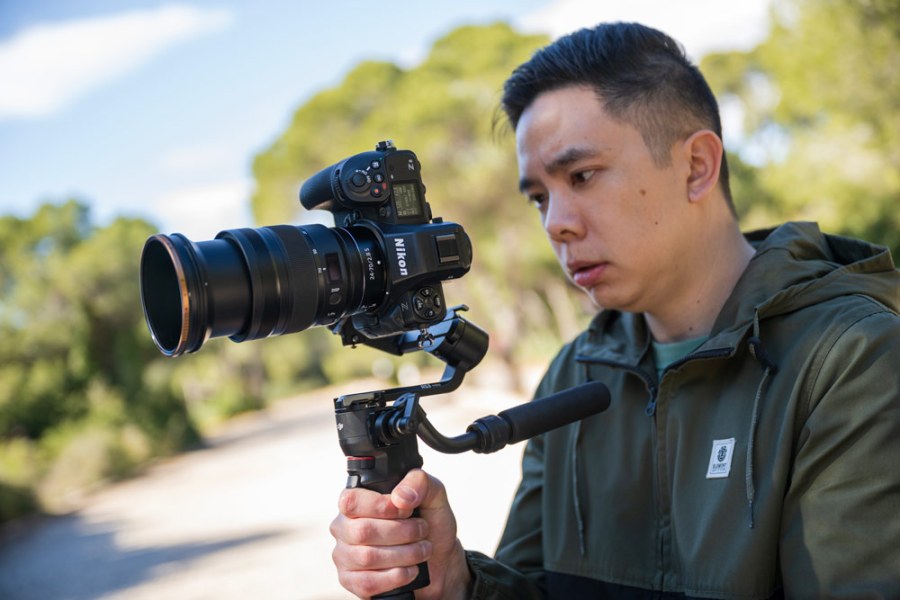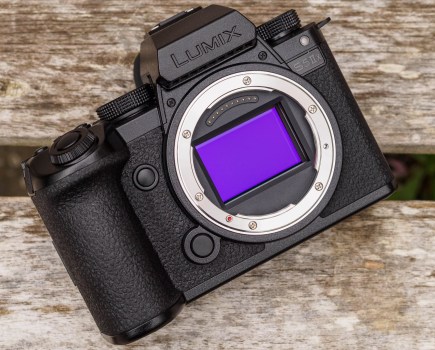For the second part of AP editor Nigel Atherton’s interview with Nikon executives at Photo London, he met Fumiko Kawabata, Department Manager, Marketing Strategy, Imaging Business Unit – Kawabata san talks about the wider changes within the camera market after a challenging few years
It’s hardly news that it’s been a tough time in the camera market since the beginning of the decade; not only do smartphones keep getting better and better, the impact of COVID was also substantial. So we caught up with Fumiko Kawabata from Nikon’s marketing department to see how it’s been responding and how it’s been adjusting its marketing strategy, particularly to appeal more to young people, women and the growing band of ‘content creators.’
As she explains, the demand for higher quality images is also helping to keep sales of its mirrorless cameras buoyant. Don’t forget to check out our guides to the best Nikon mirrorless cameras and the best Nikon Z-mount lenses, plus our previous interview with Nikon’s Keiji Oishi about the new Nikon Z8.
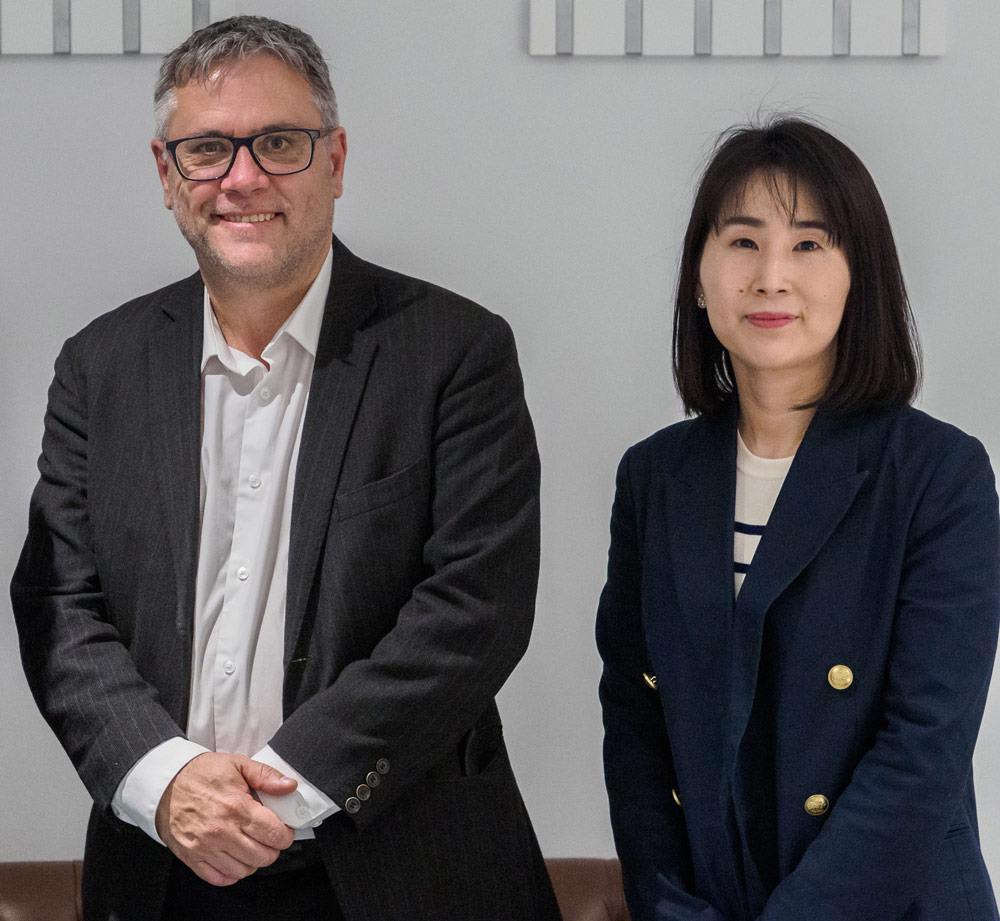
AP Editor Nigel Atherton with Fumiko Kawabata from Nikon
How is the camera market performing and how is Nikon performing within the market generally?
Nikon’s strategy is to focus on mid to high-end camera models and lenses. The mid and high-end market is quite stable, and sales of high price lenses are increasing – especially in the mirrorless market, where demand is strong. So Nikon is experiencing increasing growth in sales of its mirrorless cameras, and high unit price interchangeable lenses.
How has the photography market changed over the last five years for Nikon, and especially since COVID?
The number of people who upload images and videos to social media has become very common right now and an increasing number, especially young people, are seeking interchangeable lens cameras in order to pursue higher-quality images. This trend has accelerated since COVID.

Demand from younger people for higher quality images, especially for social media, is helping drive Nikon mirrorless sales. Image credit: Nikon
Do you think social media is the main destination for most of the content that Nikon customers are creating, even from full-frame mirrorless cameras?
Yes, especially for the younger generations. The number of content creators is increasing right now. The number of people uploading content to Instagram, YouTube and TikTok is driving the expansion of the younger generation in the video market.
And has the demographic of Nikon camera buyers changed?
Again, yes. The spread of social media is increasing the number of young people for whom videos are their core content. But the boundaries between still images and video are blurring, so it’s much more seamless now – people feel free to use video for self-expression, not only stills.
In the past Nikon has been supported mainly by professionals and advanced amateurs. But we believe that we need to become a brand that is supported by these young people as we look toward the future. So it is necessary for us to be seen as a relevant brand to the younger generations and we are also focusing on developing new touch points for them.
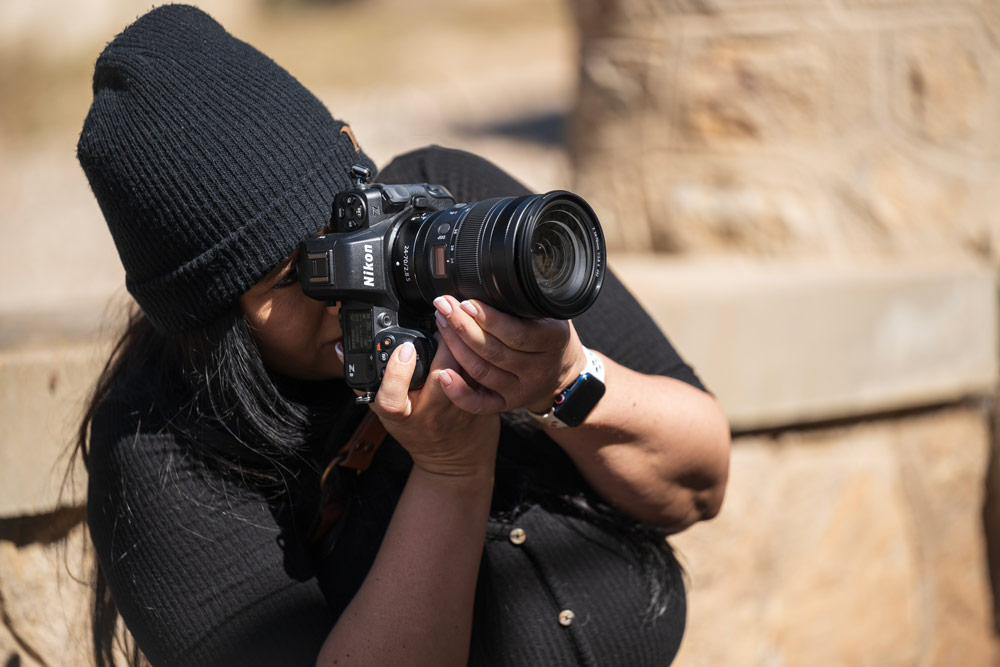
Engaging younger photographers, rather than relying on traditional markets, is a key priority for Nikon. Image credit: Nikon
And now that the smartphone has become popular as a method of image expression, we believe that the needs of people who want to enjoy photography as a hobby, and are looking for their first camera, are changing. For those who are looking to upgrade from smartphones, we have captured their needs with features such as support for video. These features have become increasingly important in recent years.
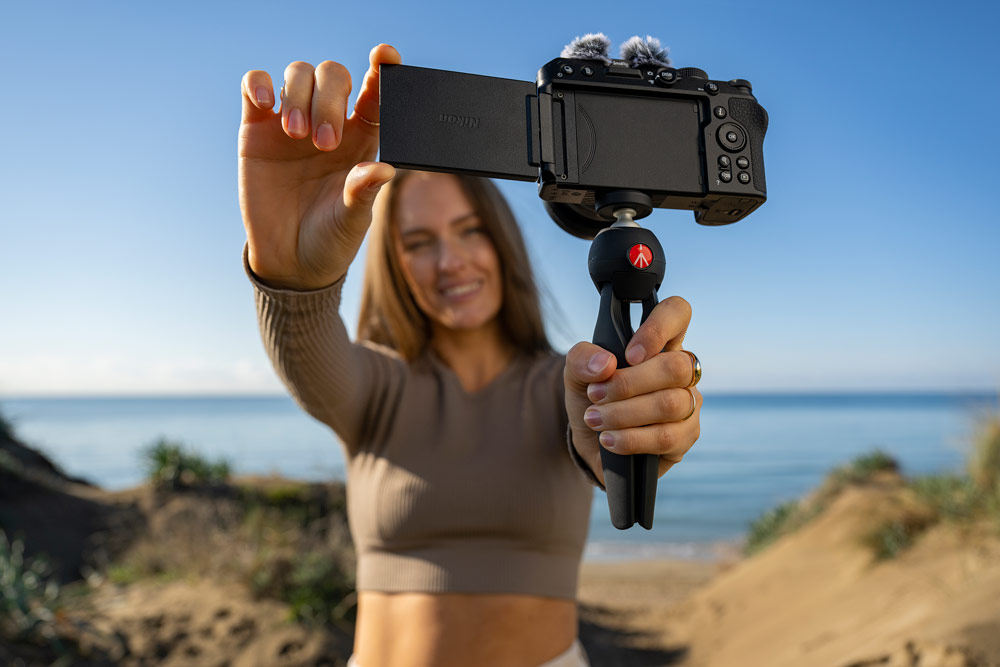
Interest in social media and content creation is helping drive an uplift in the number of women photographers. Image credit: Nikon
Has there been an increase in the number of women buying cameras and taking up photography?
We do not have figures, but women are uploading more content on social media right now so this has led to an increase in the number of female photographers or video-content creators buying cameras.
Have you done research into why customers are buying interchangeable lens camera and what they are using them for?
According to our own surveys, the most common motivation for purchasing an interchangeable lens camera is to take higher-quality photos. Among younger respondents, social media was cited as the main reason, with many using the camera to post on platforms such as Facebook and Instagram. On the other hand, many of the older age groups purchase our products because of travel. But the intention to use them for social media is high among all age groups.

Nikon cites a shift to fashion, lifestyle and travel-oriented content creators in its core marketing activity. Image credit: Nikon
Nikon said that it is increasingly ‘fan centric’ and is engaging with the new wave of creators. What do you mean by fan centric?
We believe that fans are the foundation of the imaging business because fan support increases sales, and fans make new fans because they promote our brand to others. So we very much prioritise our fans, and especially we are focusing on creating content-creator fans amongst younger photographers.
In order to achieve this, we have been creating new touch points for both online and offline, with opportunities such as creator events, photo walks and UGC (User Generated Content) channels to connect with young creators, and we have been engaging with young influencers in our marketing activities. These are not just gadget reviewers, but rather more fashion, lifestyle and travel-oriented channels. So that’s the shift in our marketing.
Where do you see the role now of printed media, like Amateur Photographer, that are more traditional – but are also ‘influencers’?
I think the print media is also important, especially for ‘conventional’ photography fans and more traditional users. Because it’s very accurate and more trustworthy than social media.
Whose idea was it to put the space between the Z and the number on Nikon cameras? And is this something you’re going to continue to do?
It’s really hard to answer, but Z itself is the brand name and we put importance of the Z logo itself. So it was to make that brand name stand out.
Further reading
Nikon Z8 interview: Nikon looking at introducing CINE lenses
Best Nikon cameras to buy
Nikon Z9 review
Nikon Z9 vs Nikon Z8
Best cameras for vlogging
Best smartphones for video

